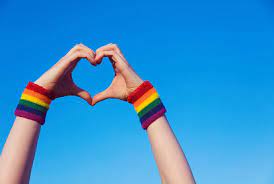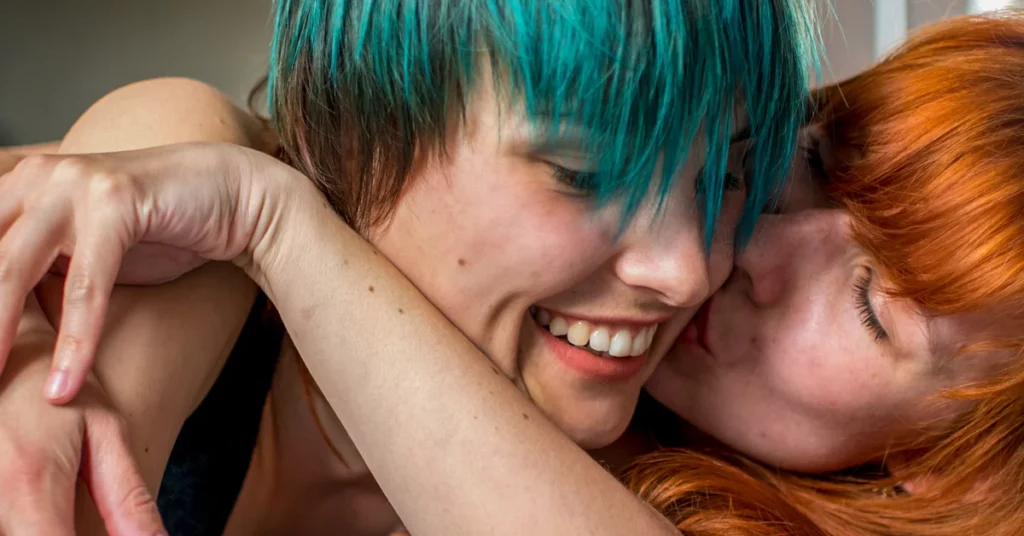Among the diverse sexuality, one is aegosexuality. It is a complex orientation nested within the gray-asexual spectrum. This blog post will delve into the depths of aegosexuality, seeking to provide a comprehensive understanding of aegosexual definition, characteristics, and implications for individuals identifying as aegosexual. This exploration will not only demystify this orientation but also foster more inclusive attitudes toward the diverse spectrum of human sexuality.
Contents
Aegosexuality Definition
 Aegosexuality, also known as autochorissexuality, is a subset within the asexual spectrum. It is a sexual orientation characterized by a lack of sexual attraction towards others. While still maintaining a capacity for sexual fantasies or arousal. This might seem paradoxical at first. But the key point here is that aegosexual individuals tend to disconnect or disassociate themselves from their sexual fantasies.
Aegosexuality, also known as autochorissexuality, is a subset within the asexual spectrum. It is a sexual orientation characterized by a lack of sexual attraction towards others. While still maintaining a capacity for sexual fantasies or arousal. This might seem paradoxical at first. But the key point here is that aegosexual individuals tend to disconnect or disassociate themselves from their sexual fantasies.
They can experience arousal from certain thoughts or sexual media. But they have no desire to participate in sexual activities themselves. In other words, aegosexual definition is when individuals might enjoy erotic literature, pornography, or sexual fantasies. But these are not directed towards specific people and they don’t express a wish to engage in these activities.
The term “aegosexuality” comes from the Greek word “aego,” meaning “me, I,” emphasizing the element of self-disassociation from sexual fantasies and experiences. Like many sexual orientations, aegosexuality exists on a spectrum, and experiences can vary greatly from one individual to another.
Difference Between Asexuality and Aegosexuality
Asexuality and aegosexuality are both terms used to describe specific sexual orientations. And can be seen as existing within the same spectrum. But there are key differences between them.
Asexuality is a sexual orientation characterized by a consistent lack of sexual attraction towards anyone, regardless of gender. Asexual individuals may still have romantic feelings and engage in relationships. But they do not experience sexual attraction.
Aegosexuality, on the other hand, is a subset within the asexual spectrum. Aegosexual individuals also don’t experience sexual attraction towards others but are capable of experiencing sexual fantasies or arousal. The distinguishing factor here is that these individuals tend to disconnect or disassociate themselves from these fantasies or arousal.
In essence, both asexuality and aegosexuality involve a lack of sexual attraction to others. Still, aegosexual individuals distinguish themselves through their ability to experience sexual arousal or fantasies that are impersonal or disassociated from themselves.
Some Common Characteristics Of Aegosexuality
 While experiences of aegosexuality can vary significantly from person to person, several common characteristics are typically associated with this orientation. Remember that not every aegosexual individual will identify with all these traits. And it’s always crucial to respect individual experiences and identities.
While experiences of aegosexuality can vary significantly from person to person, several common characteristics are typically associated with this orientation. Remember that not every aegosexual individual will identify with all these traits. And it’s always crucial to respect individual experiences and identities.
- Lack of Sexual Attraction to Others
Like asexuality, aegosexuality is characterized by a lack of sexual attraction to others. Aegosexuals do not feel the desire to engage in sexual activities with another person.
- Disassociation from Sexual Fantasies
Although aegosexuals may experience sexual fantasies or arousal, they disassociate themselves from these experiences. These fantasies usually do not involve themselves as participants, and they don’t express a wish to make these fantasies a reality.
- Sexual Arousal Without Desire for Participation
Aegosexual individuals may experience sexual arousal, often in response to certain thoughts, situations, or sexual media like pornography or erotica. However, this arousal does not translate into a desire for personal sexual participation.
- Appreciation of Sexuality from a Third-Person Perspective
Aegosexuals often appreciate sexuality from an outsider’s perspective, similar to how one might enjoy a movie or book. They can be intrigued by the concept of sex and the narratives surrounding it without wanting to participate.
- Identification with the Asexual Spectrum
Aegosexuality is considered a subset within the asexual spectrum. Many aegosexual individuals identify as asexual, acknowledging the shared lack of sexual attraction to others.
- Existence on a Spectrum
Like all sexual orientations, aegosexuality exists on a spectrum. Some aegosexual people may rarely experience sexual arousal, while others might experience it more frequently. The level of disassociation from sexual fantasies or arousal can also vary widely.
Remember, each person’s experience with aegosexuality is unique. These are broad characteristics that can help understand orientation, but they might not apply to everyone identifying as aegosexual.
Unique Challenges Faced By Aegosexual Individuals
Aegosexual individuals often encounter unique challenges due to the lesser-known nature of their orientation and the broader society’s limited understanding of the asexual spectrum. Some of the significant hurdles they might face include:
Lack of Awareness and Understanding
Aegosexuality is not widely understood or recognized by many people, including healthcare professionals, educators, and even friends and family members. This lack of understanding can lead to feelings of isolation and confusion for individuals identifying as aegosexual.
Invisibility and Erasure
Because aegosexuality is less recognized, individuals can feel invisible or disregarded in discussions around sexuality. This invisibility also contributes to a lack of resources, research, and supportive communities specifically catering to aegosexual individuals.
Misinterpretation of Experiences
Since aegosexual individuals can experience sexual fantasies or arousal, their orientation can be misinterpreted by others who may assume that they’re allosexual (not asexual) because of these experiences. This misinterpretation can be frustrating and invalidating.
Stigma and Stereotyping
Aegosexual individuals may face stigmas associated with asexuality, including harmful stereotypes that they are “broken,” “immature,” or “just haven’t met the right person yet.” These stigmas can cause emotional distress and self-doubt.
Pressure to Conform
Living in a society that often equates sex with intimacy and success can put undue pressure on aegosexual individuals to conform to sexual norms. This can lead to uncomfortable situations and compromise their comfort and identity.
Difficulty in Relationships
Navigating romantic relationships can be challenging for aegosexual individuals, especially with partners who don’t understand or respect their orientation. It can also be difficult to find a partner who is understanding and accommodating of their asexuality.
Mental Health Challenges
All of the above factors can contribute to an increased risk of mental health issues, such as anxiety, depression, and feelings of isolation.
Awareness and understanding of these unique challenges are the first steps in offering support and acceptance to aegosexual individuals. By acknowledging and validating their experiences, we can help create a more inclusive society that respects all aspects of the sexuality spectrum.
Strategies To Support Aegosexuals
 Supporting aegosexual definition of individuals involves cultivating understanding, acceptance, and empathy. Here are some strategies that can be beneficial:
Supporting aegosexual definition of individuals involves cultivating understanding, acceptance, and empathy. Here are some strategies that can be beneficial:
1. Educate Yourself and Others
Learn more about aegosexuality and the broader asexual spectrum. The more you understand, the better you can support those who identify as aegosexual. Share your knowledge with others to help dispel misunderstandings and stereotypes.
2. Create Safe Spaces for Discussion
Encourage open conversations about sexual orientations in safe, respectful environments. Normalize discussing asexuality and its subsets like aegosexuality to foster greater understanding and inclusion.
3. Respect Personal Identities
Remember that sexual orientation is deeply personal and varies widely among individuals. Respect each person’s self-identified orientation and avoid making assumptions or generalizations about their experiences.
4. Challenge Stereotypes and Stigmas
Actively challenge harmful stereotypes or stigmas surrounding asexuality and aegosexuality. Advocacy can take many forms, from correcting misinformation in conversations to supporting media representation of asexual and aegosexual characters.
5. Offer Support and Validation
Validate the experiences and feelings of aegosexual individuals. If they choose to share their experiences with you, listen without judgment and offer supportive responses.
6. Encourage Professional Training
Advocate for training on sexual diversity for healthcare providers, educators, and counselors. This training can improve the support these professionals provide to aegosexual individuals.
By implementing these strategies, we can create more inclusive communities that recognize and value the diverse spectrum of human sexuality.
Conclusion
In conclusion, aegosexuality definition is a subset of the asexual spectrum, and offers an enlightening perspective on the diverse realm of human sexuality. This orientation, characterized by a lack of sexual attraction to others, yet with the ability to experience sexual fantasies or arousal, challenges conventional wisdom about sexual attraction and participation.
The journey into understanding aegosexuality definition leads us to the broader conversation of accepting all forms of sexuality and dismantling harmful stereotypes. Each of the actions brings us one step closer to a world where everyone feels seen, understood, and accepted, no matter where they fall on the spectrum of sexuality.
Life may sometimes be challenging for asexuals, but Online Asexual Counseling can help. Get experienced LGBTQ therapists at PrideMantra: Book a trial LGBTQ therapy session


